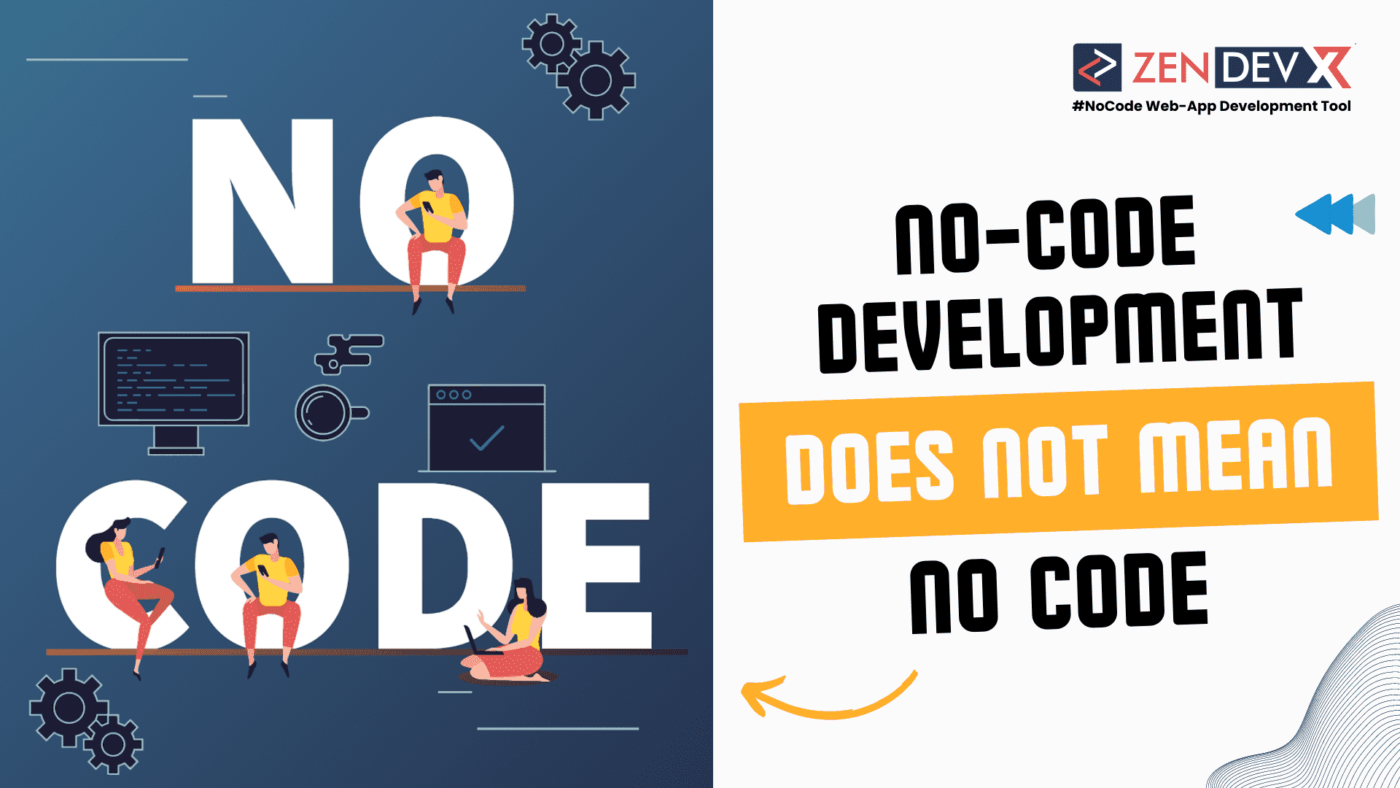Reality of No-Code Development :
The technological industry has not yet embraced the long debated and accepted adage “No Code Development Does Not Mean No Code”. Though the phrase “no code” suggests technical implementation or coding is usually required for any given project. Understanding the underlying code is still helpful for customizing and debugging even if no-code development platforms and tools help non-technical individuals apply their ideas.
These days, with the growing accessibility and usability of technology, no-code creation is much more important. Even though they have no programming knowledge, anyone can express their ideas without writing any code. Notion, ZenDevX, and Webflow are three no-code systems and tools that have enabled the general public to create complex business processes, web apps, and websites.
Still, it is important to understand that code development does not have to be completely given up. Sometimes technical implementation or coding is still necessary even if pre-built components and a graphical user interface of these tools help development. One may need written bespoke scripts, integration of outside APIs, or management of complicated logic outside the reach of drag-and-drop interfaces.
Customizing and troubleshooting no-code builds depends on one knowing the underlying code. Though they help the development process, the tools could hinder functionality or aesthetics. Basic knowledge of coding helps one to change, add to, and fix any possible application related issues.
Finally, the idea that “no code development does not imply no code” emphasizes the requirement of learning some programming even in the case of using no-code tools and systems. This feature helps customers to have more control over their projects, modify them to fit their own needs, and get past any limitations arising throughout the development process.
No-code development is becoming more essential in the quickly changing field of technology. More people and companies seeking to create new applications, streamline processes, and save time and money on development are drawn to no-code solutions. Without needing a lot of coding expertise or experience, no-code development lets people with different skill sets work together and generate concepts.
By reducing challenges and allowing people from diverse backgrounds to engage in the development process, no-code platforms have streamlined the generation of digital solutions. No-code tools are very cheap to use, therefore designers, marketers, and business owners can create, test, and implement apps rather quickly.
Still, one has to admit that completely stopping code development is not a global fix. Its inherent constraints must be recognized even if it offers several benefits including faster development cycles and more agility. Very specific apps or sophisticated features could call for technical integrations outside the scope of no-code solutions alone or custom coding.
Thus, even in a no-code development environment, a basic knowledge of coding ideas and concepts can greatly improve your capacity to construct and change programs. This feature helps individuals to link with outside systems, increase the capacity of pre-fabricated components, and fix any issues that might surface during the building phase.
The last chapter of “No code development does not mean no code” emphasizes the significance of using a comprehensive approach in software development. Although they are a more sensible and efficient way to build apps, no-code technologies shouldn’t replace solid coding knowledge. Anyone can surpass constraints and create really unique digital solutions with no-code platforms and coding knowledge.
Furthermore, the adoption of no-code development has started a more in-depth conversation about the future course of software development and the role coding will perform in that respect. Coding will always be a necessary ability in the technological industry even if some contend that code tools will never completely replace conventional tools. When one considers the advantages and disadvantages of coding versus no-code development, the reality most probably rests in the center.
Given the continuous technical developments, experts in the technological sector must be open minded and responsive to fresh ideas. Even if no-code development offers a pleasant way to quickly prototype and create applications, knowledge of coding can help to improve and optimize the end result even more. Combining aspects of no-code creation and coding can provide creative and strong ideas utilizing both technologies.


